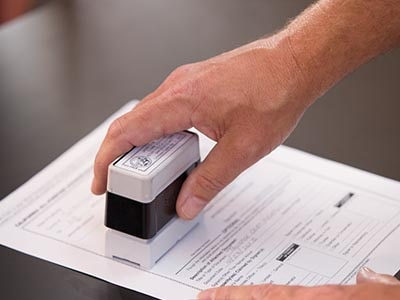Debunking Notarial Job: Streamlining the Function and Significance of Notaries
In the detailed internet of lawful paperwork and verification, notaries stand as columns of guarantee and authenticity. Their role, usually shrouded in secret for lots of, carries significant weight in making sure the legitimacy and stability of critical papers. As guardians of validity and fact, notaries play a critical part in our culture, yet their job is not constantly completely comprehended. By unwinding the complexities bordering notarial practices and shedding light on the significance of their acts, a clearer understanding arises of the crucial function notaries play in maintaining the textile of contractual and lawful arrangements.
The Background of Notarial Job
The history of notarial job dates back to ancient civilizations, where scribes played an essential function in taping important info and authenticating files. This led to the development of notaries, individuals appointed by the state to act as unbiased witnesses in legal issues.
During the Middle Ages, notaries gained prominence in Europe, with their features expanding to include drafting legal files, licensing signatures, and preserving records. The surge of worldwide trade even more stressed the significance of notarial operate in confirming agreements and arrangements throughout boundaries.
In the modern-day era, notaries proceed to play an essential function in legal and service deals by verifying identifications, verifying the authenticity of files, and stopping fraud. Their duty in accrediting the credibility of arrangements includes a layer of safety and depend the ever-evolving landscape of commerce and law.

Responsibilities and Responsibilities of Notaries
Notaries play a vital function in confirming the authenticity of documents and the identity of signatories. One of their key responsibilities is to witness the signing of essential records, such as wills, agreements, and actions, to make sure that all parties are entering right into contracts purposefully and voluntarily.
In addition, notaries are entrusted with providing oaths and affirmations, which are vital in legal process and the implementation of affidavits. They accredit duplicates of original papers, giving guarantee to institutions that the copies are real replicas of the originals. Notaries need to keep exact records of all purchases they supervise to make sure openness and responsibility. Overall, the duties and duties of notaries are important in securing the integrity and legality of various files and deals.
Notarial Certificates and Signatures
Exemplifying careful interest to detail, notarial certifications and trademarks serve as vital parts in verifying the authenticity of lawful records. Notarial certificates typically consist of crucial information such as the date of registration, the names of the notaries, a description of the paper, and the notary's official seal. These certifications give a clear record of the notarial act, making certain that the document can be easily recognized and mapped back to the notary who managed the process.
Signatures play a pivotal role in notarial work, as they symbolize the agreement and authorization of the events involved. Notaries thoroughly witness the finalizing of records to confirm the identity of the signatories and validate that they are authorizing of their very own complimentary will. By attaching their official useful site seal and trademark to the file, notaries license that the needed treatments have been complied with which the file is valid and enforceable.
Fundamentally, notarial certifications and trademarks are the trademark of credibility in lawful purchases, providing guarantee to all events entailed that the documents are genuine and binding.
Importance of Notarial Acts
Notarization Refine Discussed
The notarization procedure normally starts with the individual providing the paper to a notary public. Once the identity is validated, the notary makes sure that the private signing the document does so voluntarily and without any coercion.

Conclusion

Notarial click to find out more certificates generally contain important info such as the date of registration, the names of the signatories, a description of the file, and the notary's official seal. These certificates supply a clear record of the notarial act, ensuring that the file can be easily determined and mapped back to the notary visit our website who supervised the procedure.
By attaching their main seal and trademark to the file, notaries certify that the required procedures have been followed and that the document is valid and enforceable.
By confirming the identification of the notaries, verifying their readiness to enter into the agreement, and licensing the date and location of the finalizing, notaries play a crucial function in maintaining the validity of legal papers.After the record is signed, the notary will affix their main seal or stamp onto the paper.